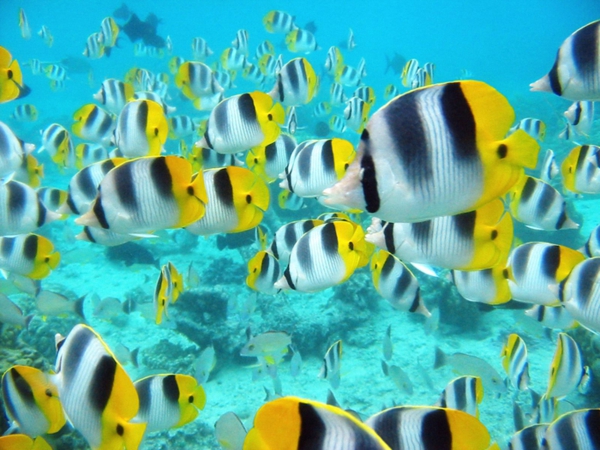There are a gazillion of fish pet lovers all over the world! Unlike your usual furry pet friends, that you can have various interactions with throughout the day; such as stroking their bellies (Oh! They love this!), playing fetch ball, massaging their warm bodies, taking them on a stroll along the park, grooming or training them, it is only in feeding that we can lavish attention to our fish pets! Compensating for limited means of bonding with our fish pets allows pet owners to commit a huge blunder in taking care of them that is – feeding them more often than they really need. In your fishes’ world, your mere presence would always mean meal time! These repetitive gestures of over feeding your full-finned water-gliding friends condition them to be ecstatic and appear hungry even if they are not. They might cluster to the top of the tanks or beg you with a remarkable stare but learn to control your urges to indulge them with food! You think over feeding them is not a biggie? Think again! If you are not ready mourning for your fishes’ death, then don’t overfeed. Let this article save you from those agonizing tears and excruciating jolts of guilt for unknowingly murdering your own pets!

Aquarium fishes can be fed once or twice a day but make sure to keep your feedings in small amounts. The amount of fish pellets, flakes and the like should be consumed by your pets with a duration that is no longer than five minutes. A reliable indicator of a good feeding is that there is no leftovers that might obstruct the filters or settle on the gravel. If this guideline confuse you, you can be safe by underfeeding them. Always stick to this rule no matter how your fishes voraciously gobble up their food, look famished and begging for more.
Excess fish food causes a myriad of health hazards to the life of your pets. The excesses will settle either in the aquarium’s decorations, filter, or gravels and in effect will decay. Fishes tend to excrete their poops more often when overfed. The decaying food matter coming from the uneaten food and fish waste inside the tanks can surely serve a mouthful feast for the harmful bacteria and other pathogenic organisms that will later produce cloudy water. The aquarium will be transformed into a toxic and fatal arena for the fishes. The water becomes richer in carbon dioxide than oxygen, more acidic and with the unwanted presence of ammonia, nitrates and phosphates which was an aftermath of a decaying process. This environment will give a very conducive breeding ground for planaria or flat-worms, mold, blue-green and red algae. The incessant crowding of these deathly matters will clog the filter and will give you more chores to do. You might be lucky enough to save your fishes from the water’s toxicity by changing the water more often, but you will eventually see your fishes struggle from a disease called fin-rot or rotting of the fins due to stress and bacterial infection.
Moderation is always the key in feeding your fish pets. It is always a dazzling sight to see all your fishes healthy and properly-fed. Make sure you spread the word to all the “fish-sitters” in the family so they will also know what to do!
This article is written by Artchee Mendoza exclusively for this site. He is also a contributing writer for www.fintastic.us who are dealers of custom aquariums.

